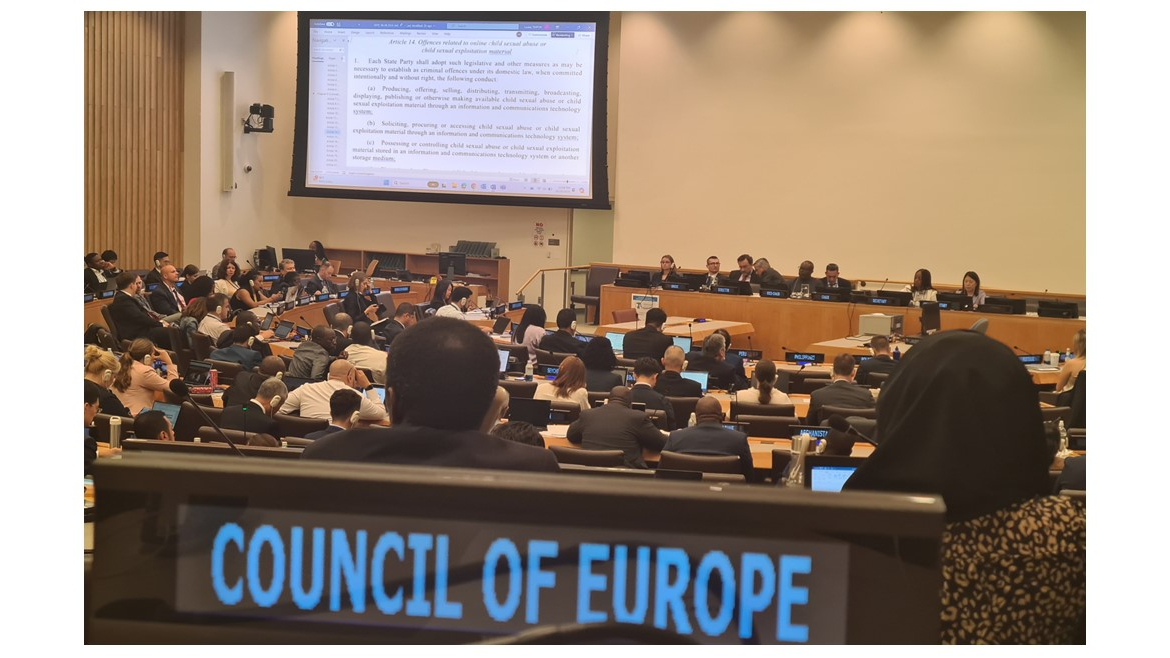The recent agreement by the United Nations Ad Hoc Committee (AHC) on the draft “United Nations convention against cybercrime; strengthening international cooperation for combating certain crimes committed by means of information and communications technology systems and for the sharing of evidence in electronic form of serious crimes” is a major political achievement.
The Council of Europe through its Cybercrime Programme Office (C-PROC) contributed to this outcome.
The draft UN treaty represents a narrow criminal justice treaty that seems broadly consistent with the Budapest Convention on Cybercrime (BC) and that contains minimum safeguards necessary for international cooperation. However, concerns raised by civil society and industry stakeholders remain valid.
The draft treaty confirms the timeless quality and relevance of the BC: the core concepts and measures of the draft treaty are drawn from the BC on Cybercrime (2001) complemented by provisions adapted from the UN Conventions on Transnational Organised Crime (UNTOC, 2000) and Corruption (UNCAC, 2003).
The advanced tools of the Second Protocol to the BC for enhanced cooperation and disclosure of electronic evidence (2022) have not been included in the draft UN treaty.
While in the foreseeable future, the BC with its Protocols will remain the more relevant and trusted framework for cooperation on cybercrime and electronic evidence, further reflections are needed regarding the interplay between the Budapest Convention on Cybercrime and this forthcoming UN treaty.
Council of Europe: Convention on Cybercrime and its Additional Protocols
Council of Europe: Conventions on cybercrime: the Budapest Convention and the draft UN treaty (Briefing note)
[EN / FR / ES]



